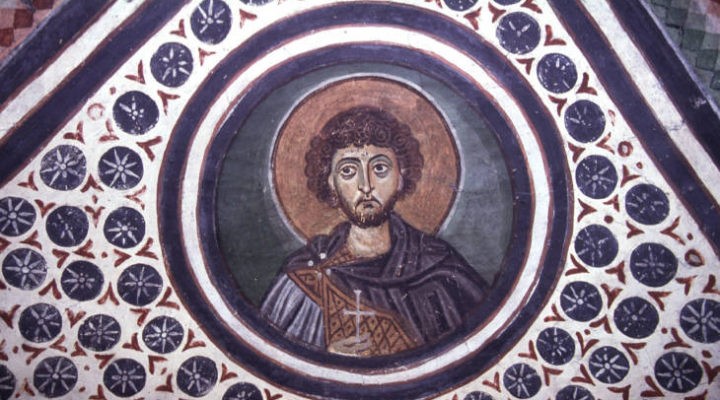We’ve all lapsed from something, haven’t we? If we live long enough, we lapse from all sorts of promises, convictions and ideals we thought we’d never relinquish. COVID-19 has enforced collective lapses from restaurants, concerts, movies and sporting events, not to mention human interactions through hugs and handshakes, choirs and classes, sacred spaces, too.
With one in five Americans (“nones”) claiming no religious affiliation, the religiously lapsed are everywhere these days. One study conducted from 2015 to 2018 indicated that only a little more than half the youth reared in the Southern Baptist Convention now remain in the SBC. I think increases in the religiously lapsed will continue, influenced in part by the way we Christians are acting.

Bill Leonard
Merriam-Webster defines “lapse” as “a temporary deviation or fall especially from a higher to a lower state,” all the way to outright “abandonment of religious faith.” That’s nothing new; early Christians divided over responses to the lapsi, those who claimed faith, then compromised it under political pressure.
Remember Rome in 249
In October 249 Trajan Decius became Roman emperor after defeating the invading Goths along the Danube. As W.H.C. Friend wrote in his massive work, The Rise of Christianity, “Decius was inspired by the vision of the past military virtues of Rome and its emperors. He was hailed as the new Trajan, and he added the name of the ‘best of emperors’ to his own.”
Calling himself “the restorer of the sacred rites and liberty,” and rehearsing Rome’s past glories, Decius decreed that all citizens (except Jews) demonstrate their loyalty by offering a “sacrifice” (incense or libation) to the “Roman gods and the emperor’s genius.” This oblation was to be made in the presence of a Roman magistrate, who certified in a libelli that the governmentally mandated ritual had been carried out.
“Christians, a flourishing community in the Empire, were compelled to offer imperial sacrifices under threat of punishment, even execution.”
Christians, a flourishing community in the Empire, were compelled to offer imperial sacrifices under threat of punishment, even execution. Some refused to participate and were imprisoned, with an unknown number put to death. Others, including some bishops, chose exile or went underground.
Cyprian, the great bishop of Carthage, acknowledged the courage of those who remained faithful, noting, “the white-robed cohort of Christ’s soldiers is here, who in the fierce conflict have broken the ferocious turbulence of an urgent persecution, having been prepared for the suffering of the dungeon, armed for the endurance of death.” They rejected such imperial idolatry.
The choice was not easy. Eusebius, the church’s first historian, wrote that certain Christians, when approaching the state-mandated temples, “were pale and trembled as if they were not about to sacrifice, but to be themselves sacrifices and offerings to the idols; so that they were jeered at by the multitude who stood around, as it was plain to every one that they were afraid either to die or to sacrifice.”
These were individuals with names
The persecuted were individuals with names and histories. Dionysius, bishop of Alexandria, reported in that city “an old man named Metras was stoned when he refused to blaspheme. Next, a woman named Quinta was dragged through the streets and stoned when she refused to participate in pagan worship. Then, the goods of the Christians were plundered.”
Yet many did the deed, made sacrifice, securing their certificate of dedicated citizenship. Others bribed government officials to obtain documents without having to publicly deny the faith, an act that Bishop Cyprian viewed as equal to a direct lapse, writing, “Nor let those persons flatter themselves that they need repent the less, who, although they have not polluted their hands with abominable sacrifices, yet have defiled their consciences with certificates. That profession of one who denies, is the testimony of a Christian disowning what he had been.”
These policies took their toll. Professor Frend wrote: “Even so, the Christian church practically collapsed. In every large center for which evidence survived, the story was one of immediate obedience to the emperor’s orders. Christians joined their pagan neighbors in a rush to sacrifice.”
Eusebius observed that some of the lapsed “advanced to the altars more readily, declaring boldly that they had never been Christians. Of these the prediction of our Lord is most true that they shall ‘hardly’ be saved. Of the rest some followed the one, others the other of these classes, some fled, and some were seized.”
“Immediately at the first words of the threatening foe, the greatest number of the brethren betrayed their faith, and were cast down, not by the onset of persecution, but cast themselves down by voluntary lapse.”
Cyprian was even more explicit, noting: “Immediately at the first words of the threatening foe, the greatest number of the brethren betrayed their faith, and were cast down, not by the onset of persecution, but cast themselves down by voluntary lapse. They would swear not only rashly, but even more, would swear falsely; would despise those set over them with haughty swelling, would speak evil of one another with envenomed tongue, would quarrel with one another with obstinate hatred.”
He added that not a few bishops “who ought to furnish both exhortation and example to others, despising their divine charge, became agents in secular business.” Fortunately, Decius’s reign ended after only two years, dying in another battle against the Goths. Professor Frend wrote: “Even so, the Christian church practically collapsed. In every large center for which evidence survived, the story was one of immediate obedience to the emperor’s orders. Christians joined their pagan neighbors in a rush to sacrifice.”
Afterward, what to do with the lapsed?
Afterward, the church confronted controversy and schism over whether the lapsed could be restored to faith after they transferred their loyalty from Christ to the emperor. Strict constructionists, led by a Roman priest named Novatian, denied restoration of the lapsed, asserting that they had committed an irreconcilable post-baptismal sin. Cyprian, however, insisted that the church was empowered by God to offer forgiveness to those who repented.
When Cornelius, who sided with Cyprian, was elected bishop of Rome in 251, a rigorist faction of priests revolted, electing Novatian as the bishop of Rome. Ultimately, Novatian was declared a heretic, excommunicated and later labeled an “anti-pope” by the Catholic Church, whose penitential, confessional system was developed as a spiritual response to the inevitable post-baptismal sins.
And what of us? Have American Christians lapsed into a kind of imperial idolatry that distracts, even compromises, us away from the moral, spiritual values and truths we said we never would abandon? Are we living in a country that demands imperial loyalty and punishes, or attempts to punish, those who do not conform? Have we lapsed so profoundly from the gospel we once treasured that we don’t even realize it’s gone?
Perhaps there is hope. Cyprian ended his treatise “On the Lapsed” (354) by asserting that those who “made atonement to God,” repenting of their “shame,” and renewed “both of virtue and of faith,” would, with God’s help, “make the church which (they) had lately saddened glad, and shall now deserve of the Lord not only pardon, but a crown.”
Let’s get to it.
Bill Leonard is founding dean and the James and Marilyn Dunn professor of Baptist studies and church history emeritus at Wake Forest University School of Divinity in Winston-Salem, N.C. He is the author or editor of 25 books. A native Texan, he lives in Winston-Salem with his wife, Candyce, and their daughter, Stephanie.
More by Bill Leonard:
Faith can come rather quickly, but conversion takes a lot longer
‘This is the end of the world!’ (again): past lessons for a present crisis | #intimeslikethese
Never again? Remembering Auschwitz amid enduring anti-Semitism and increasing acts of hatred


